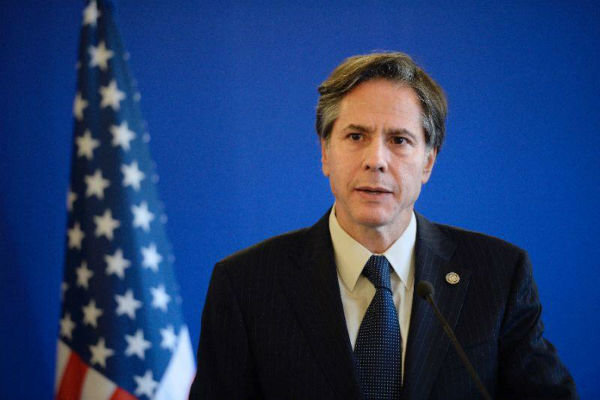Blinken says U.S. will rejoin JCPOA if Iran reverses its nuclear measures

TEHRAN - U.S. Secretary of State Antony Blinken says his country will return to the Iran nuclear deal if Tehran returns to compliance with the terms of the agreement, officially called the Joint Comprehensive Plan of Action (JCPOA).
“U.S. is willing to return to compliance with the 2015 nuclear deal if Iran does,” Blinken says in an interview with NBC News on Monday.
Iran and the U.S. are caught in a dispute that which side should first honor its obligations under the JCPOA.
Analysts say it was the U.S. that quit the JCPOA and imposed sweeping sanctions on Iran and naturally it should take the first step in removing sanctions on the Islamic Republic.
Iran is still a party to the nuclear deal. It only started to decrease some of its commitments exactly one year after former President Donald Trump pulled the U.S. out of the agreement and slapped the harshest sanctions in history against Iran in line with his “maximum pressure” campaign against Tehran.
Iran says its nuclear steps are in accordance with paragraph 36 of the JCPOA which has “provided a mechanism to resolve disputes and allows one side, under certain circumstances, to stop complying with the deal if the other side is out of compliance.”
On the question over who must take the first step in returning to the JCPOA, Iranian Foreign Minister Mohammad Javad Zarif told CNN late on Monday that this issue could be resolved by European Union foreign policy chief Josep Borrell.
Borrell could put his "hat on" as coordinator for the Joint Commission of the JCPOA "and sort of choreographing the actions that are needed to be taken by the United States and the actions that are needed to be taken by Iran," Zarif said.
Blinken also claimed that Tehran was months away from being able to produce enough fissile material for a nuclear weapon, adding it could be only "a matter of weeks" if Iran continues to lift restraints in the nuclear deal.
In December the Iranian parliament approved legislation obliging the government to increase uranium enrichment to 20 percent and suspend the Additional Protocol to the NPT if the sanctions against Iran are not lifted within two months.
In line with the implementation of the parliamentary act called “strategic action to lift sanctions”, the government started enriching uranium to 20 percent on January 4.
Iran has said it has no intention to build weapons of mass destruction (WMDs), including nuclear arms. Leader of the Islamic Revolution Ayatollah Ali Khamenei has described production, stockpiling, and use of WMDs as haram (religiously banned).
In his Monday interview with CNN, Zarif said, "If we wanted to build a nuclear weapon we could have done it some time ago."
Zarif added. "But we decided that nuclear weapons are not, would not augment our security and are in contradiction to our, eh, ideological views. And that is why we never pursued nuclear weapons."
Blinken also highlighted the importance of multilateralism and added the Biden administration will “work with U.S. allies and partners on a ‘longer and stronger’ agreement encompassing other issues.”
Asked about whether the release of detained Americans, which was not part of previous talks, would be an absolute condition for an expanded nuclear treaty, he did not commit.
"Irrespective of ... any deal, those Americans need to be released. Period," he remarked, saying, "We're going to focus on making sure that they come home one way or another."
Trump quit the JCPOA in 2018, claiming it did not do enough to restrict Iran’s nuclear and missile programs or its influence in West Asia.
According to Press TV, Zarif also told CNN that the JCPOA did not include Iran’s defensive capabilities because the U.S. was not prepared to stop its arms sales to the region as a precondition.
“The nuclear deal was negotiated based on what we could agree and what we could not agree. This is the deal that was made,” Zarif said.
“The United States has to accept that ... we decided not to agree upon certain things, not because we neglected them, but because the United States and its allies were not prepared to do what was necessary. Is the U.S. prepared to stop selling arms to our region?”
Zarif said Iran “spends a seventh of Saudi Arabia on defense, with 2.5 times its population."
“If it wants to talk about our defense … is the U.S. prepared to reduce hundreds of billions of dollars of weapons it is selling to our region?
EE/PA
Leave a Comment